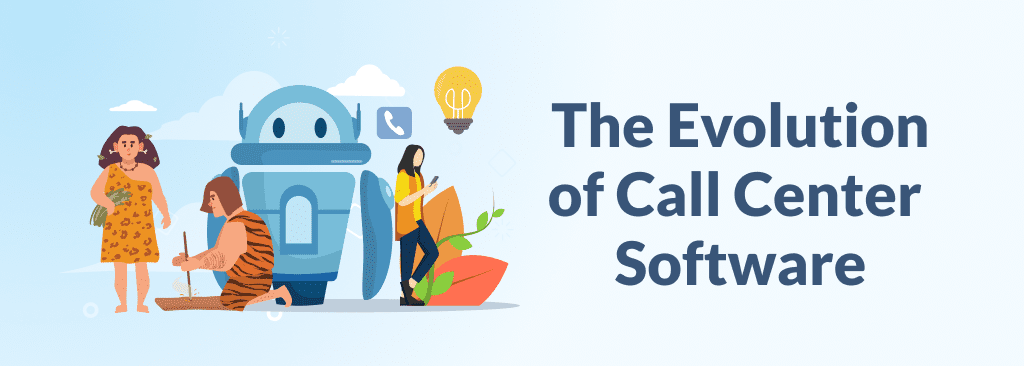The Evolution of Call Center Software
Remember the days when call center customer service consisted of endless hold times? Thankfully, those days are gone! The evolution of call center software has been remarkable, evolving from basic call routing systems to the sophisticated, AI-powered platforms we see today.
This blog will take you on a historical adventure, exploring the key milestones that shaped this technology from its humble beginnings to its current state as a sophisticated tool for enhancing customer experiences.
The humble beginnings of call center software
The roots of call center software can be traced back to the early days of telephony, where basic systems were employed to manage incoming and outgoing calls. These primitive solutions provided basic call routing and queuing functionalities, allowing businesses to handle a higher volume of calls more efficiently than traditional manual methods.
However, in the mid-1950s, computer-based systems replaced the manual process of routing phone calls. This system was called the Automatic Call Distributor (ACD) and was the first innovation that moved call centers toward what they are today.
The impact of CTI and the rise of cloud-based solutions
The advent of computer telephony integration (CTI) in the 1980s marked a significant leap forward in call center technology. CTI worked its magic by seamlessly blending telephony systems with computer systems, allowing for more advanced call routing, automatic call distribution and screen-pop functionalities. This integration laid the foundation for super-efficient call handling and enhanced customer interactions.
During the early 2000s, the rise of cloud computing brought about a revolutionary shift in the deployment and management of call center software. Cloud-based solutions offered greater flexibility, scalability and accessibility when compared to traditional on-premise systems.
This breakthrough empowered businesses to harness advanced call center functionalities without the burden of expensive infrastructure investments, making these solutions particularly attractive to small and medium-sized enterprises.
The transformative shift to multichannel support
As consumer preferences diversified, the demand for multichannel support within call center software grew. Modern customers expect to interact with businesses via a variety of channels, including phone, email, chat, social media and SMS. In response, call center software evolved to accommodate these channels, offering omnichannel capabilities that enabled seamless communication across all touchpoints. This shift towards multichannel support reflected a broader trend toward providing a unified and consistent customer experience.
Data-driven growth and AI-powered efficiency
Call center software has increasingly relied on metrics to derive key insights for growth. These software solutions leverage robust Reporting and Analytics capabilities that enable businesses to track key performance metrics, identify trends and make data-driven decisions. By harnessing the power of analytics, organizations can optimize call center operations, improve agent performance and enhance the overall customer experience.
Additionally, artificial intelligence (AI) has emerged as a game-changer in the call center industry in recent years. AI-powered features such as natural language processing, sentiment analysis and chatbots have revolutionized the way calls are handled and customer queries are resolved.
AI-driven call center software can automate routine tasks, provide personalized recommendations and even anticipate customer needs, leading to greater efficiency and customer satisfaction.
The future of call center software
The future of call center software promises even greater innovation and advancement. As customer expectations continue to evolve, call center software will need to adapt to meet the demands of an increasingly digital and connected world.
From basic call routing systems to sophisticated AI-powered solutions, call center software has come a long way in enhancing customer experiences and improving operational efficiency. As we look towards the future, the role of call center software will only continue to grow in importance, serving as a critical tool for businesses to connect with their customers and deliver exceptional service.
Request a demo to discover how TCN can provide your call center with the most advanced and innovative solutions to empower you to deliver exceptional customer service, even as modern consumer expectations evolve.
